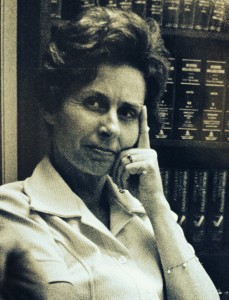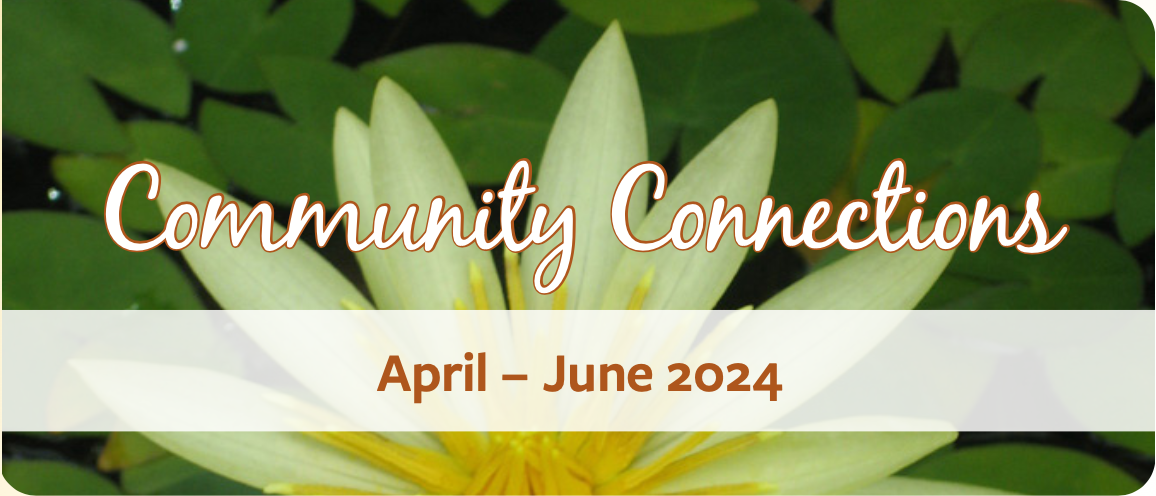Mac Nash

Initially given a prognosis of just a month or two, in April 1978, she was granted a more optimistic outcome of another year or so of life. She used every bit of it: Mac spent her last 22 months learning, engaging others, and organizing the founding of Mission Hospice. Until the very end, Mac lived her life as she had always done – leading, loving, and inspiring others.
By the time she died in October 1979, just 47 years old, she had not only shown her family and friends how to live life to the very end, she had helped give life to a brand new organization. She had also become the first patient of Mission Hospice.
She’d long been known as Mac – a shorthand of sorts for her given name, Marguerite Ann Kloha. Her family and friends – and she had many, many of them – describe Mac as joyous, cheerful, enthusiastic, fun, insightful, remarkable, compassionate, energetic – a catalyst and a leader. “We can do it!” was one of her favorite phrases.
Her husband John said that early on, he became accustomed to being introduced as “Mac’s husband.” The two had met at DePauw when both were students. When John was drafted after his junior year, Mac wrote to him every day. They were married in 1954, right after she graduated, and she worked at the Admissions Office while he finished his studies.
Not long afterwards, John’s job with Nekoosa Paper Mill transferred him to California – a move that he says scared him “to death.” Neither of them had ever been west of the Mississippi, but they packed up their young son Bill and drove west, settling in San Mateo. They soon welcomed daughter Kari and youngest son Bob to their family, and put down roots in San Mateo.
Mac shined as a community leader. She was the first woman lay leader in her church, a position she held for three years. Pastor Bob Hawthorne of the Hillsdale United Methodist Church said that Mac “performed nearly every job in the church with energy and spirit,” and was “the person we all turned to with personal concerns – or often, she turned to each of us with a kind of radar knowing whatever needs there were.”
She was a trusted mentor for her congregation’s Tongan community, starting an English program for native speakers, and even learning enough Tongan to give a sermon in that language.
In fact, even before she became ill, Mac had helped others heal. She volunteered as a nursing station volunteer at Mills Memorial Hospital, and helped establish the Mills Auxiliary Support Services. Little did she know that this group would later become the core of volunteers and connections that would work so closely with Mac in her final months.
Mac’s son Bob said it was a few months after her diagnosis that Mac had a dream, one that woke her up with a vision of a place where people could die comfortably, without pain, and surrounded by loved ones. At this point, Mac didn’t even know what hospice was – but this dream would ultimately become a brand-new nonprofit to provide such care for others.
Unbeknownst to Mac, across town another remarkable woman, Helen Lagen, had just helped a good friend through her death, and was learning about hospice. Helen had nursed her good friend Bernice Gray, a long-time RN at Mills – through her death, and had turned to the Mills’ auxiliary support service group for grief counseling and emotional support. The chaplain at Mills Hospital, Rev. Warren Dale, knew both Mac and Helen, and connected the two.
They bonded immediately, bound by their shared conviction that people needed a way to die peacefully, and with physical, emotional, and spiritual care. As Helen wrote, “although we had met only a short time before, we seemed to recognize the potential strength of a partnership in purpose. As we worked together to develop our mutual concern for the terminally ill into the reality of Mission Hospice, our relationship deepened until Mac became to me a sister – daughter – friend.”
Mac and Helen – known as “the chair pair” – shared the leadership of the nascent group exploring options for providing hospice care on the Peninsula. In 1978, local options for hospice care were limited to Hospice of Marin and an in-hospital program run by Kaiser in Hayward.
Others soon joined the chair pair. Marilyn Stone, a nurse at Mills; Mac’s doctor, Steven Marks (also a good friend and member of Mac’s church); and Rev. Dale were all interested in this idea of hospice care. Together, they learned from organizations across the country, meeting regularly to bring shape to the idea that was to become Mission Hospice.
As Mac’s illness progressed, it was difficult for her to attend all the meetings. Helen visited her partner at home after every meeting to report in and plot next steps. They worked closely until the very end.
On October 15, 1979, Mac died at home, as she wished. Mission Hospice nurse Joanne Rovno was at her side. The organization had been incorporated just seven months earlier.
“The amazing strength of her family was there all along but it was also called forth by her sensitive preparations,” said Pastor Hawthorne. “She taught them and us how to die.”
Mac’s compassion, strength, and teachings live on. As the co-founder and – fittingly – the first patient of Mission Hospice, she established a legacy of compassion that she would be so pleased to know has since provided care for thousands of others in the community she loved so much.


 Download your spring
Download your spring